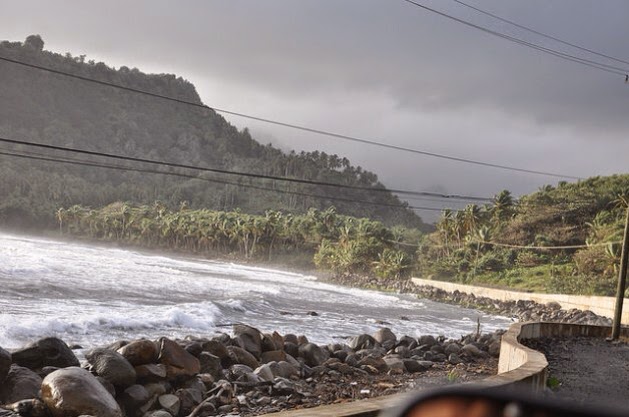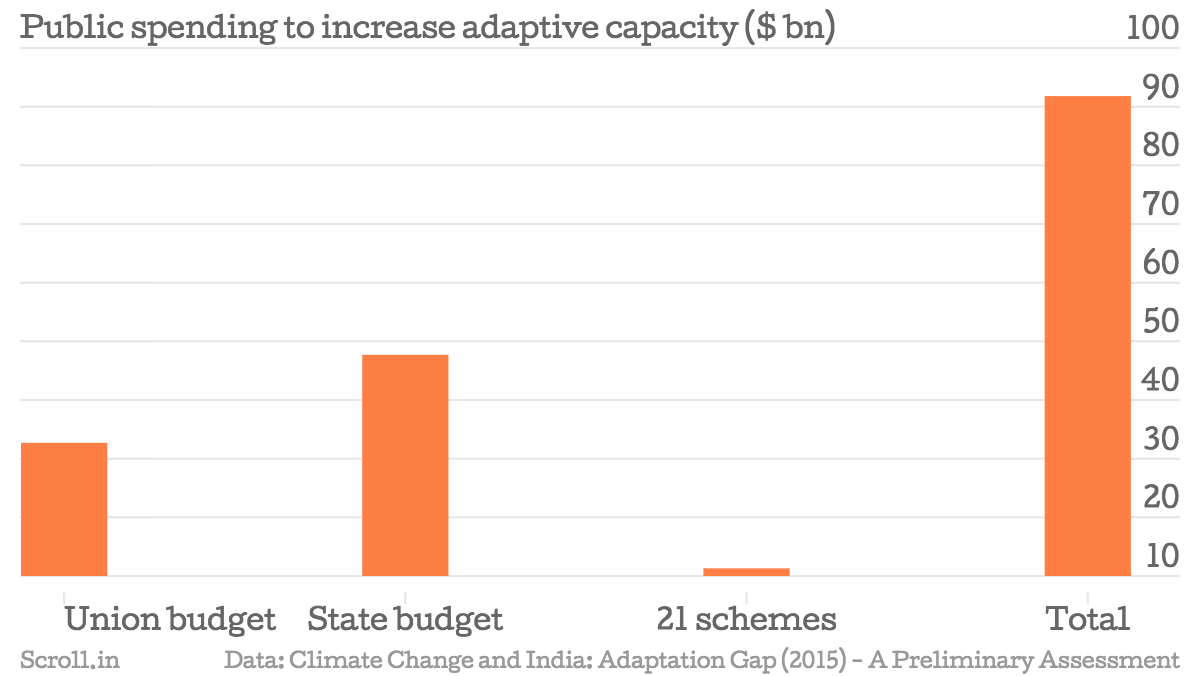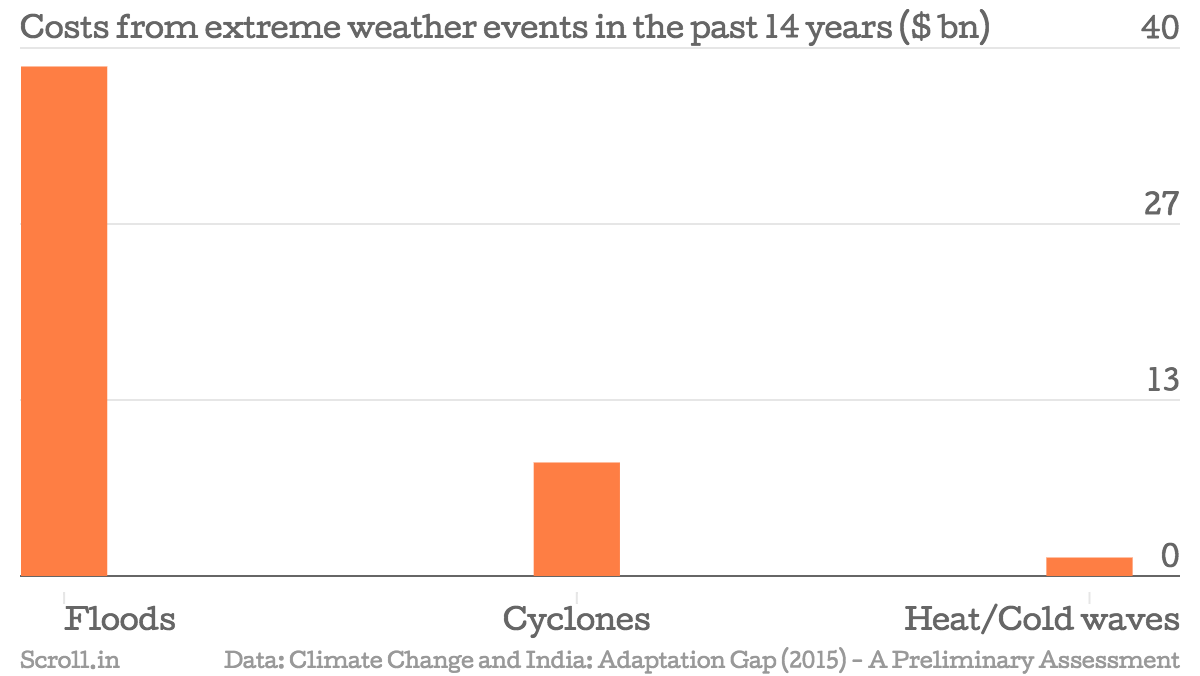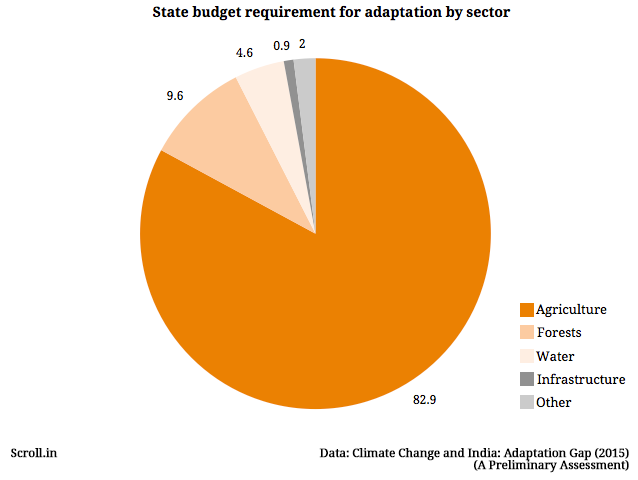
India Need $1 Trillion By 2030 To Adapt To Climate Change, A Report Says
Nowadays, the climate change has become one of the major problems apart from different kinds of pollutions. In the 21st conference of Parties on Climate Change, a major decision has been taken regarding climate finance. It is said that, in the world, there are 48 countries to achieve their plans to tackle the climate changes. They all need around $1 Trillion by 2030 to control the climate changes occurring.

Evaluating based on plans submitted by the Least-Developed Countries (LDCs) towards a new UN deal to control global warming. The estimates show the costs over $93 billion a year from 2020. India is leading the charge in asking developed countries to foot a larger portion of the bill for adaptation and technology development in developing countries. India needs $360 billion in financing to adapt to climate change in the next 15 years.
According to the new report, up to $1 trillion is needed to include technology, institutional and capacity building. India has been hot country since climate changes started in the 1950s. Rising temperatures, monsoon precipitation declining and droughts are becoming more frequent. In recent years, there have been many extreme disasters affected India in many places with highly damaging to lives and property.

From destructive flash flood in Uttarakhand in 2013 to heavy rainfall and flooding in Chennai over the last few weeks. The main agenda at the Paris conference is to agree on a set of actions to mitigate carbon emissions so that atmospheric warming can be restricted to 2 degree Celsius above pre-industrial levels. So far, all over temperature in the world has raised by 0.8 Celsius. Especially developing countries will have to adapt to the rising sea level, changing agricultural systems, disease, and wild weather.
The new report called Climate Change and India Adaptation Gap (2015) – A Preliminary Assessment, analyzed extreme weather events in the last 14 years to find that there were 131 instances of major flooding, 51 instances of cyclones and 26 instances of heat and cold waves and three instances of major drought, said Vimal Mishra, assistant professor of civil engineering and author of the report.

The losses from these events tallied up to $51 billion, the biggest damages coming from floods. The risks from a changing climate are getting worse and the actions to tackle it continue to be inadequate creating what’s called an adaptation gap. “The adaptation gap is very dynamic,” said Vimal Mishra. $53.8 billion costs annually to reduce emissions and $39.9 billion to deal with more extreme weather and rising seas, according to a report from the London-based International Institute for Environment and Development (IIED).
IIED Director Andrew Norton said, “A fair and effective deal at Paris should prioritize the investment of international public climate finance for this group to implement their climate action plans while agreeing on measures to help better-off countries attract private climate finance. All 48 countries have produced so-called Intended Nationally Determined Contributions (INDCs) to a new global climate deal.”

India is not taking the climate threat lightly. The report estimates that while India’s overall budget has increased four times in the past decade, its commitment to adaptation measures has actually increased five times and stands at about $33 billion in 2014-’15. These plans set out how they will curb their emissions from 2020 by shifting to renewable power sources, such as solar, or building cleaner public transport.
“Developed countries should take some sort of responsibility. We estimate on the basis of what the government is spending. India is agreeing to reduce 30%-35% emissions intensity and that is a very big commitment. $1 trillion is the high-end ball-park number which India may need in the worst case scenario in 2030,” said Mishra.